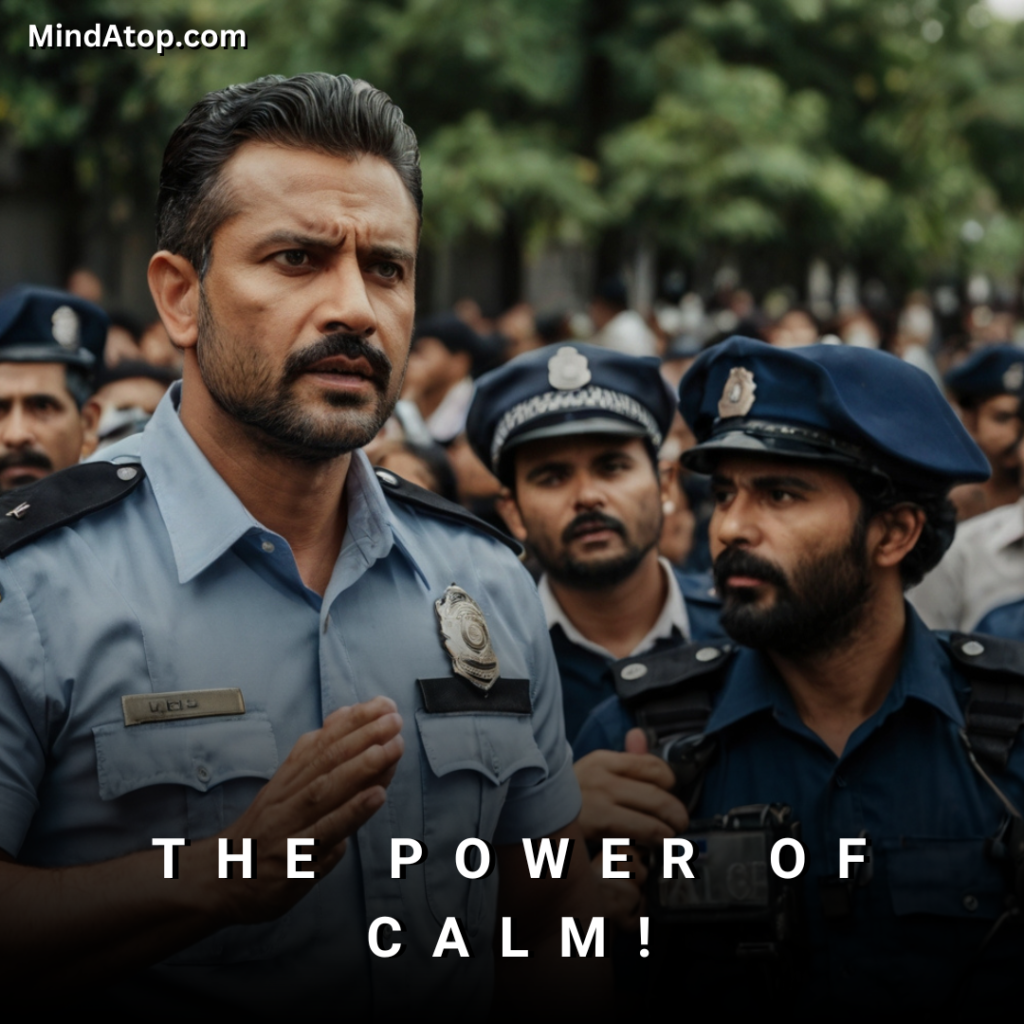The Power of Calm!
When Stillness Stopped the Storm — The Power of Calm
The Power of Calm wasn’t just a principle for Inspector Ajit—it was his way of life. In a world where law enforcement often leaned on aggression and authority, Ajit stood apart, not because he lacked strength, but because he believed true strength didn’t need to shout.
Ajit had built a reputation in the department for his gentle nature and steady approach. While his colleagues often relied on intimidation or loud commands, Ajit preferred clarity, empathy, and conversation. “This job requires strength, Ajit,” they would tell him. “You can’t solve everything with words and patience.” But he would simply smile and reply, “True strength comes from within, not from how loud or forceful we are.”
Despite the skepticism, Ajit had resolved countless tense situations with his unique approach. He was sharp and quick-thinking, but what truly set him apart was his ability to remain grounded, no matter how chaotic the scene.
One afternoon, trouble struck the town. A group of angry protesters gathered outside the police station, enraged over a controversial local decision. Tensions soared as the crowd swelled in number, their voices rising in anger. Shouting, chanting, and banner-waving turned the area into a boiling point. Ajit and his team were dispatched to control the situation.
The officers prepared for a potential riot. Many tightened their grips on batons, eyes scanning the restless crowd. “We should use force before they cross the gate,” one officer muttered nervously.
Ajit stood silently, assessing the situation. “Let’s wait,” he said softly. “No need for aggression unless it’s absolutely necessary.”
But the protest grew louder, the crowd inching closer. When one officer yelled at the protesters to back off, it triggered a wave of movement and panic. Ajit saw the escalation coming—and stepped forward.
His presence was different. No shouts, no threats—just a calm, unwavering energy that somehow pierced through the chaos. He lifted one hand in a quiet signal. Something in his stillness made the crowd hesitate. The shouting softened. The protesters, caught off guard by the absence of aggression, slowed their advance.
Ajit began to speak—not loudly, but clearly and with conviction. “I understand your frustration,” he said, locking eyes with the front-liners. “We are here to listen, not to fight. But to listen, we must first bring down the noise.”
Something shifted. The crowd, moments away from bursting into violence, began to listen. Ajit’s calm tone disarmed their rage more effectively than any weapon could. Slowly, the energy changed. Protesters began voicing their concerns one by one. Ajit listened attentively, responding with reason and empathy. He didn’t dismiss their anger—he acknowledged it, absorbed it, and met it with stillness.
The power of calm had done what batons and shields could not—it created space for understanding.
Within thirty minutes, the crowd’s fury had dissolved into discussion. Some people even smiled. Nods replaced clenched fists. A group that had come prepared to clash left feeling heard and respected.
Ajit’s fellow officers stood in awe. They had been ready for confrontation. Yet here was Ajit, standing in the middle of a once-hostile crowd, earning their respect not through fear—but through calm conviction.
After the protesters left peacefully, one of his colleagues approached him. “That was… incredible. You turned the entire situation around without lifting a finger.”
Ajit smiled. “Sometimes people don’t need to be silenced. They just need to be heard. When we stay calm, we give others the permission to calm down too.”
That day, the team learned something they hadn’t expected—the power of calm was more than just a mindset. It was a force. It had the strength to halt a mob, dissolve tension, and prevent disaster. In a world where power is often equated with volume, Ajit had shown them that real power lies in stillness.
From that moment on, Ajit wasn’t just respected—he was deeply admired. His colleagues began to reflect on their own approach. They started to believe that perhaps there was greater strength in control over oneself than over others.
The power of calm had reshaped more than just a protest—it had changed the hearts of those who witnessed it.
Must Read Stories:
Accepting is NOT Endorsing – “Calm makes space without surrendering values.”
Healing Magic! – “Calm opens the door where healing walks in.”
How do you Respond? – “Still wondering how calm rewires your reaction?”

